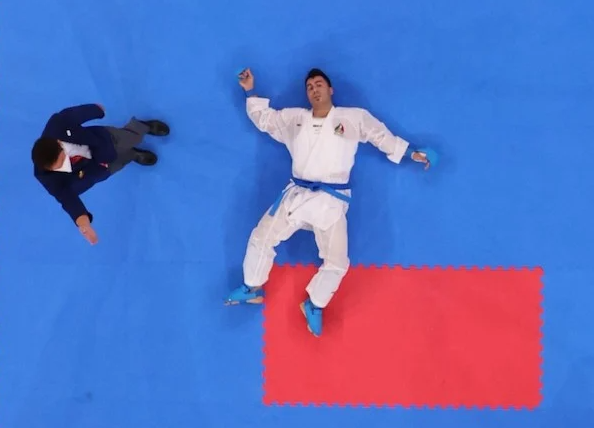September 3, 2021

Iranian refugee Kimia Alizadeh fell short in her hunt for a medal, losing in the semifinals after three consecutive victories in the women’s 57-kilogram division.
Alizadeh was one of five Iranians who fled from Iran and qualified to compete in the Olympics as members of the refugee team.
None of the refugees ended up winning a medal, but Alizadeh was among those who came closest.
Alizadeh won bronze as a teenager in the last Olympics, claiming the first Olympic medal for an Iranian woman.
In January 2020, Alizadeh decided she was done with being a “propaganda tool.” She decided to defect for Germany and compete for the Germans. But Olympians are not free agents; they cannot just pick a new team. The process is a lot more complicated than that.
The one-year COVID-19 Olympics delay bought her time. This year, she was able to join the refugee team.
And when she showed up, who was her first opponent? Nahid Kiyani Chandeh, competing for Iran.
When she left Iran, Alizadeh wrote on Instagram that she was not a hero. She was a person choosing to pursue a better life.
She wrote of the restrictive attitude toward women, of the “corruption and lies” that were an unavoidable part of competing for Iran, of the “compulsory hejab” she had to wear. Now here she was, an Iranian living in Germany, competing as a refugee in Japan, trying to beat not just her opponent, but her past.
Steadily, she did just that. The final was 18–9. Then she hugged Chandeh.
In the round of 16, Alizadeh stunningly beat the top seed, Great Britain’s Jade Jones. Then she beat China’s Lijun Zhou. She was into the semifinal, two matches from being an Olympic champion, but then Russian Tatiana Minina beat her.
Alizadeh still had a chance to match her bronze medal from Rio. She shared that one with Iran. This one would be hers alone.
In the bronze-medal match, Alizadeh led Turkey’s Hatice Ilgun after the first round, trailed by a point after the second, and finally lost 8–6. She slowly walked over to a chair, sat and hung her head. Five years, one defection, many hours of training and untold fears and anxieties had brought her here. As she walked out, there was a towel over her head where the compulsory hejab used to be and she was bawling. She was so distraught that she declined to speak to reporters.






















